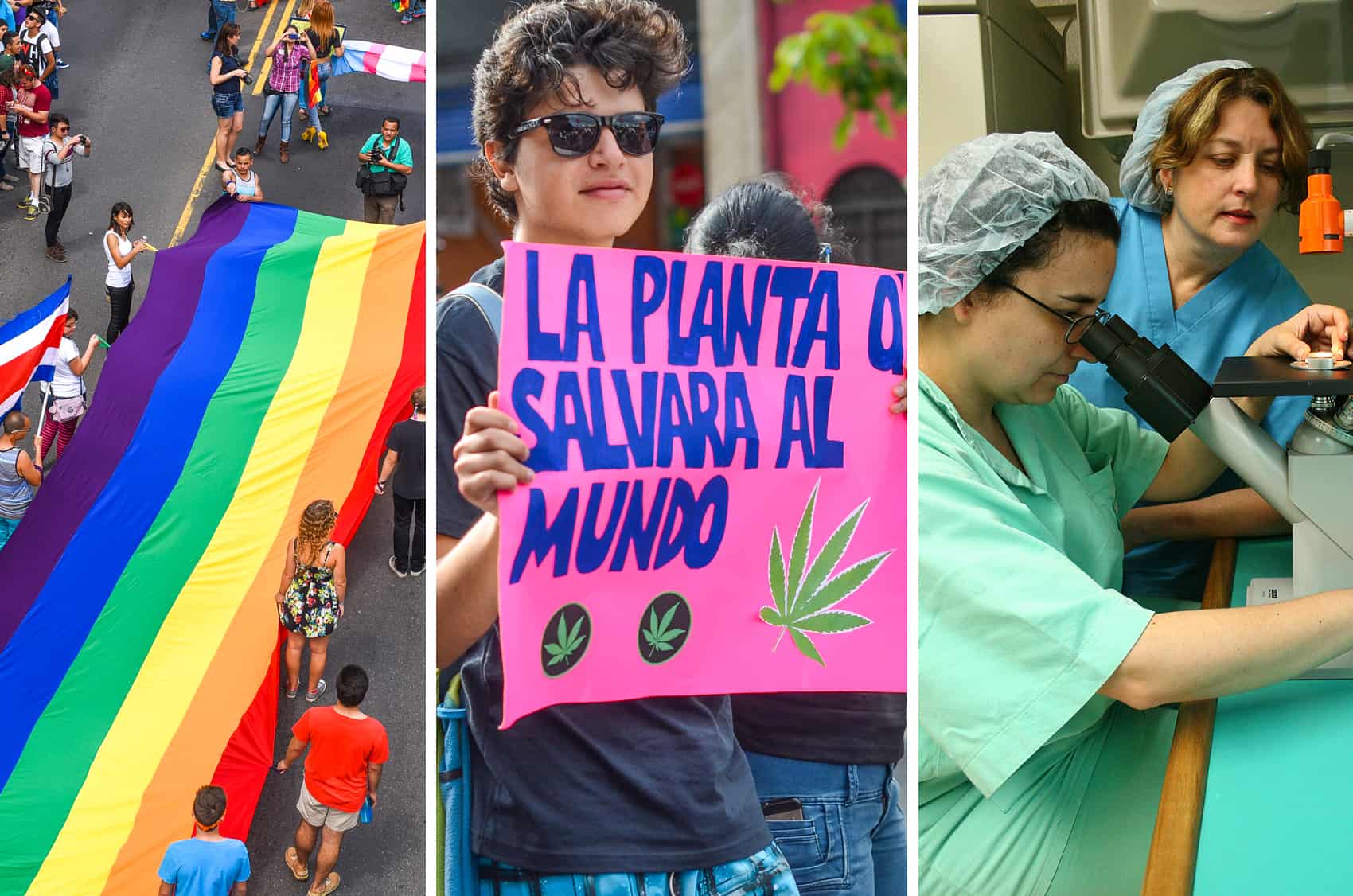In vitro fertilization, same-sex civil unions, medical marijuana and new taxes are among Casa Presidencial’s upcoming priorities for the upcoming legislative session. Casa Presidencial presented its list of 65 bills for consideration for the next month during its weekly press conference Tuesday afternoon.
Presidency Minister Sergio Alfaro Salas told reporters that Casa Presidencial will focus its strategy on building consensus on bills that could be passed, but the ambitious agenda will have to contend with a recalcitrant legislature that has shown little interest in cooperating with President Luis Guillermo Solís.
During extraordinary sessions the executive branch sets the legislative agenda, pushing its priorities to the top of the legislators’ list of bills to consider.
IVF dominated discussion during Tuesday’s press conference. President Solís had previously said that if the Legislative Assembly does not take up the bill to regulate the fertility practice, which was banned in Costa Rica in 2000, he would issue an executive order legalizing it.
“The government believes that the Legislative Assembly has an obligation to legislate in this area, but the executive branch also has an obligation to make sure there is not a second reprimand against Costa Rica in international human rights courts, and therefore is willing to issue a decree that could regulate this technique,” Alfaro told reporters.
In June, Costa Rica received a reprimand from the Inter-American Court of Human Rights over its noncompliance with the court’s order to legalize and regulate IVF in 2012. Costa Rica is the only country in the Western Hemisphere to outlaw the procedure.
“A sentence that orders us to regulate a specific technique as part of the exercise of a human right seems to me like it should be a national priority,” Alfaro said. “A second reprimand would not be good news for a country that sees itself as a defender of human rights.”
Alfaro said that Casa Presidencial has yet to draft the executive order. “If there is legislative viability, Casa Presidencial will support it,” he said.
IVF and same-sex civil unions were among the more controversial bills to be under discussion. The National Liberation Party and Social Christian Unity Party alliance currently running the Assembly has said these topics are non-starters for their agenda. Despite the pushback from the legislature, Casa Presidencial went ahead with these bills.
“These subjects are complicated but they are priorities for this administration,” Alfaro said.
“Sir and madam lawmakers. We respectfully ask you to pass the #LeyDeAguas (Water Law) #FIV (in vitro fertilization), Civil Unions and Autonomy for Handicapped People,” tweeted Vice President Ana Helena Chacón on Tuesday.
Señoras y señores diputados. Solicitamos respetuosamente aprobar #LeyDeAguas, #FIV, Sociedades de Convivencia y Autonomía Pc Discapacidad.
— Ana Helena Chacón (@anita_chae) July 28, 2015
Among the bills on the executive branch’s short list is the Aquatic Navigation Bill, which has languished in the Assembly for more than two years. The bill’s reforms include allowing the Public Works and Transport Ministry to levy economic sanctions against captains and businesses that violate maritime law and require crews to attend basic boat safety courses, including first response, onboard fires, and man-over-board situations.
Maritime-Port Administration Director Luis Fernando Coronado previously told The Tico Times that if the Aquatic Navigation bill were law, the Pura Vida Princess catamaran that capsized in January would never have been allowed to leave port if the Coast Guard had determined that conditions were too dangerous.
Casa Presidencial included a controversial bill from ruling Citizen Action Party (PAC) lawmaker Marvin Atencio that would regulate the production, distribution and commercialization of medical marijuana and hemp. The Health Ministry released its initial opinions about the bill, giving tentative approval to most of the bill’s provisions. Costa Rica would be the first country in Central America to legalize medical marijuana if lawmakers decide to pass the proposal.
The Solís administration also plans to present bills for its proposed value-added tax and other revenue generating measures as soon as they are issued numbers.
Alfaro is set to meet with the leaders of political parties on Thursday to see how the factions can find common ground on the bills, according to a statement from Casa Presidencial.






